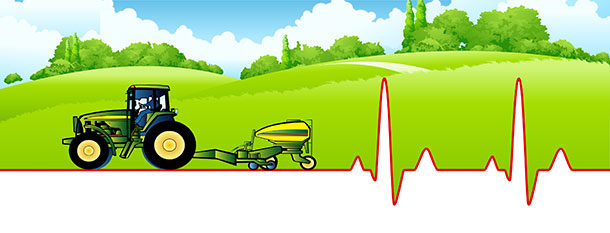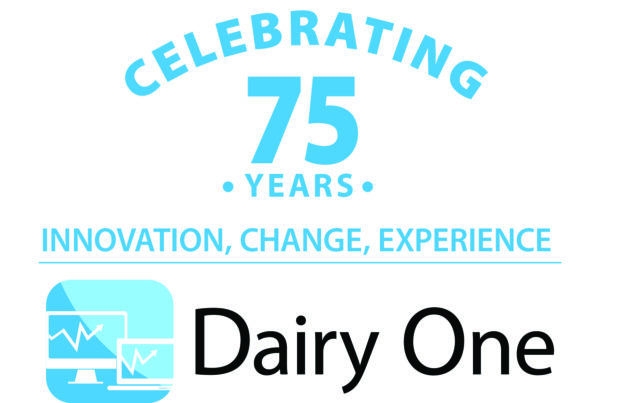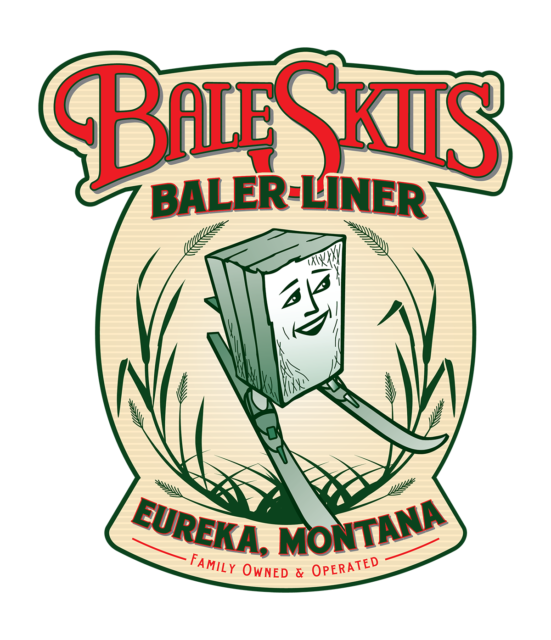It’s a well-known fact that spring and fall are the busiest times of the year for farmers. Many work long days, starting before sunup and finishing after sundown. These long hours can be hard on your health. Consequently, it is highly important to pay attention to what your body is telling you.It could mean the difference between a quick five-minute water break and a trip to the hospital or worse.
It is important to watch for these problems: cardiac arrest, heart attack, stroke, diabetic emergencies and heat stress.
Cardiac arrest
Cardiac arrest is when the heart stops due to an electrical malfunction. Heart attacks are not the only cause of cardiac arrest. Almost any heart condition increases someone’s chances, regardless of age. Someone experiencing cardiac arrest will be nonresponsive and won’t take a normal breath when the head is tilted up. Should you come across someone experiencing this type of emergency, call 911 immediately, then start CPR. Time is key here. It only takes minutes for the brain to suffer damage or death from loss of oxygen.
Heart attack
A heart attack happens when blood flow to the heart is either cut off or severely reduced, depriving the heart of oxygen. Symptoms may include extreme fatigue, palpitations, labored breathing, chest or jaw pain, dizziness, cold sweat, nausea or light-headedness. Call 911 immediately should you or someone you know shows signs of a heart attack.
Stroke
A stroke is when a blood vessel is either blocked by a clot or rupture, depriving the brain of much needed oxygen and nutrients. This clot or rupture occurs within the arteries in the brain or leading to it. For identifying a stroke simply think FAST, which stands for face drooping, arm weakness, speech difficulty and time to call 911.
Diabetic emergencies
Because of the long strenuous work hours, diabetics need to be even more mindful of their insulin/glucose balance. If you are or someone you work with is a diabetic, watch for changes in behavior as this could be a sign of a diabetic reaction. Should this occur, you may need to dial 911 or seek medical help.
Heat stress illnesses
Heat stress is a general term for different heat-related afflictions. Not all are life threatening, but some can be without proper treatment. The more concerning ones include heat cramps, heat syncope, heat exhaustion and heat stroke. Heat cramps, heat syncope and heat exhaustion aren’t medical emergencies. However, they should be treated immediately to prevent the condition from worsening. With each of these, have the person rest in a cool, shaded area and drink water, clear juice or a sports drink.
Heat cramps are muscle pains or spasms in the abdomen, arms or legs due to low body salt and water levels. If the person has heart problems, is on a low-sodium diet or the cramps last for more than an hour, medical attention may be required.
Symptoms of heat syncope include light-headedness, dizziness or fainting caused by dehydration or lack of acclimatization. The person may notice this after standing for a while or when they get up too quickly from a sitting or lying position.
Heat exhaustion is caused by severe dehydration. Symptoms include heavy sweating; extreme fatigue; dizziness; nausea; clammy, moist skin; pale or flushed complexion; muscle cramps; slightly elevated body temperature; and fast, shallow breathing. If possible, have them take a cool shower, bath or sponge bath in addition to resting and rehydrating.
Heat stroke is a life-threatening, medical emergency. When this occurs, the body is no longer able to cool itself. Within minutes the body temperature may shoot up. Symptoms include hot, dry skin or profuse sweating, hallucinations, chills, throbbing headache, high body temperature, confusion or dizziness and slurred speech. Call 911 immediately then attempt to cool the person by moving them to a cool, shaded area and wetting them and their clothes with water and fanning them.
Prevention
When working outside for long periods of time, especially in a hot environment, take precautions.
- Stay hydrated and don’t skip meals.
- Drink water or other beverages such as juice or a sports drink frequently enough that you never feel thirsty. Do not drink excessively caffeinated beverages, such as energy drinks, as these will cause further dehydration.
- Food is also highly important. If you don’t have time for a full meal, then bring several healthy snacks with you and eat frequent, small meals.
- Try to schedule the hardest work in the morning or evening when it’s cooler.
- Be attentive to what your own body is telling you as well as the conditions of others.
- If you’re working with someone who has a medical condition, be mindful of it.
- If you have a medical condition, make sure at least one person you’re working with is aware of it.
Be prepared
The reality is things happen sometimes, no matter how careful you are. Make sure everyone working has access to a phone and knows what address to give emergency personnel. If you’re working alone, tell someone where you are, and have him check up on you. Many farms are in rural areas where it may take medical personnel some time to arrive. Take a CPR class or watch the American Heart Association’s hands-only CPR video. Get an automated external defibrillator if you or someone you work with is at risk for cardiac arrest. They will walk you through each step should you ever need to use it. In an emergency, these precautions could mean the difference between life and death for someone you love.
See the American Heart Association and the Centers for Disease Control and Prevention for more information. FG












